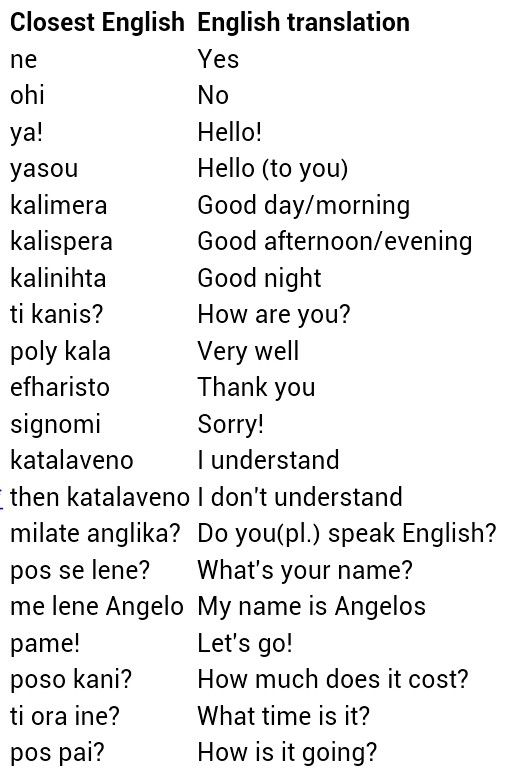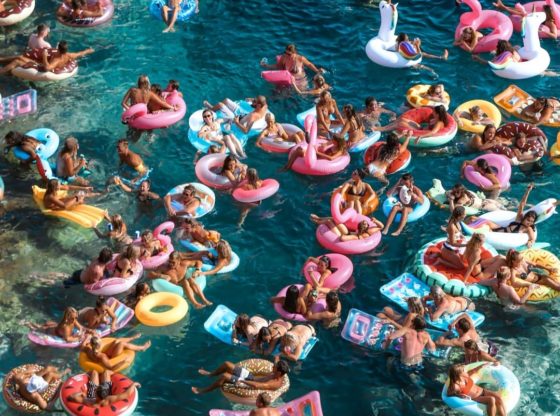Like all good ideas, it generally starts with being out with your friends having a few Aperol Spritzes or Coronas and someone says “Let’s go to Europe”.
A chorus of “Yeah, lets” is received. Then it just happens. Right?
Now what?
Now that you have decided to have a “Gap Year” or take a few weeks off during Uni 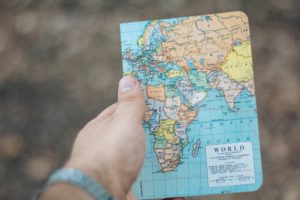 holidays, that’s the easy bit,
holidays, that’s the easy bit, ![]() now it’s time to start the planning. You may have travelled to Europe before with your parents or a school trip, but this time you’ll be on your own without any parental supervision. This time it will be very different as you will need to plan on where to go and how to get there, find accommodation, navigate plane and train schedules, organise travel insurance, plan a budget, save money, make your own decision (and suffer your own consequences).
now it’s time to start the planning. You may have travelled to Europe before with your parents or a school trip, but this time you’ll be on your own without any parental supervision. This time it will be very different as you will need to plan on where to go and how to get there, find accommodation, navigate plane and train schedules, organise travel insurance, plan a budget, save money, make your own decision (and suffer your own consequences).


This is when the questions start.
Here are the answers to the most common questions I get, as well as a few tips thrown in for free.
Tip #1 – Don’t believe everything you see online and use caution. This article is called “THE 7 ESSENTIAL TRAVEL TIPS FOR FIRST TIMERS TO EUROPE”, but as you can see there is many more. I lied to you! If I had put he real number in the headline you would have read the title as…
“OVER 100 SOMETHING, SOMETHING ABOUT TRAVEL BLAH BLAH TIPS SOMETHING SOMETHING EUROPE”
Let the tips begin…..
A beginners guide to travelling Europe (and a special section on Greece)….
FLYING
- Don’t miss your flight!
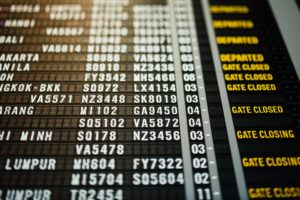
- Get to the airport 2 hours prior for an international flight.

- Get to the airport at least 1 – 1.5 hours before an internal European flight. Don’t forget to allow travel time to get to the airport. Always leave yourself enough time. Its better to be early and spend some time in the airport than to run late and find that the check-in counter has closed.
- Try to always do online check-in at least 24 hours prior to departure. Check that the flight times have not changed, and this is also when you can do your seat allocation (if your fare class allows it).
- Take a change of clothes in your carry on luggage. If your checked luggage does not arrive at the other destination you will at least have some clean clothes to change into until your suitcase arrives.

- If your luggage does not arrive at the airport, do not leave the airport without reporting it and getting an official report in case you need to make an insurance claim.
 If your flight is delayed, take photo of the delayed notification on the airport flight board, it can help with any travel insurance claim
If your flight is delayed, take photo of the delayed notification on the airport flight board, it can help with any travel insurance claim- Don’t forget you will have less luggage allowance on the internal flights then you will on the international flight. You may also need to pay for your internal flights.
- Check your ticket to see if luggage is included or if you have to purchase luggage. Many internal European flights do not include luggage. If you have to purchase luggage its generally cheaper to do it on-line on the airline’s website rather then at the airport.
- All of your flight tickets are electronic, so if you lose anything, just ask me for a copy.
PACKING
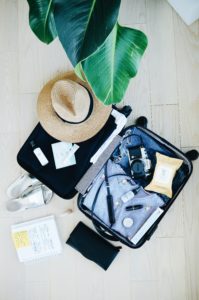 When packing lay all your clothes out on your bed and throw away half of them. You won’t need all of those clothes.
When packing lay all your clothes out on your bed and throw away half of them. You won’t need all of those clothes.
- Take a small power board so that you can plug multiple electrical items into it to charge at the same time.
- Take a tube of Vegemite. Even if you are not addicted to the salty breakfast goodness, its surprising how you miss it when it is not available. It can also be a beacon to meeting other Aussies when the yellow & red logo is spied across a breakfast room.
- Take a small padlock with a combination lock. This can be essential if staying in hostels to lock your luggage or if lock on the locker is broken.

- A silk sleeping bag
 liner is useful when sleeping in hostels where the bedding may not seem clean or you are looking for a little bit of extra warmth as the sheets are a bit threadbare.
liner is useful when sleeping in hostels where the bedding may not seem clean or you are looking for a little bit of extra warmth as the sheets are a bit threadbare. - Take a small bottle of washing liquid you can do a small wash in a sink or bath if you cannot find laundry
- If you require a high sunscreen Factor you may want to take your own from Australia because most Europeans don’t use over Factor 30
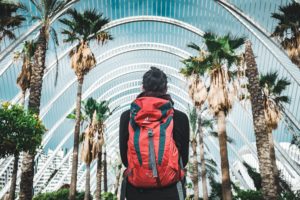 A backpack. Its a bit cliche, but a backpack is easier through ancient cobblestoned street, or when you need to climb many flights of stairs in an old European hostel, or getting on and off trains and ferries, or squashing into a cramped taxi boot space.
A backpack. Its a bit cliche, but a backpack is easier through ancient cobblestoned street, or when you need to climb many flights of stairs in an old European hostel, or getting on and off trains and ferries, or squashing into a cramped taxi boot space.
- If you are taking a suitcase, make sure you invest in a good one that has very sturdy and robust wheels, as well as a strong handle (especially if you are like most people and use the handle to help lift the suitcase up stairs or onto plane luggage belts etc)
- A sarong to cover yourself. It is essential if visiting religious site to cover the shoulders
 One of those lightweight “Turkish” towels. Not only do they take up very little room, dry quickly, but if you want some privacy, you can use them as a “curtain” on your bunk bed is staying in a Hostel dorm room.
One of those lightweight “Turkish” towels. Not only do they take up very little room, dry quickly, but if you want some privacy, you can use them as a “curtain” on your bunk bed is staying in a Hostel dorm room.
- Travel light you don’t want a heavy suitcase or backpack trying to navigate through cobblestone streets or carry upstairs.
- Buy an external battery pack for your phone and camera.
- Pack ear plugs it’s because the hostels can get noisy
- Take an eye mask to help you sleep
- Take toiletries in small bottles take out a little bit of the liquid and squeeze it before putting the lid back on as your bottles do tend to expand and you don’t want them to explode in your suitcase.
- Take some zip lock bags. They are good for putting bottles with liquids in or wet clothes, or even dirty shoes.
- Do not over pack remember you it will be summer, see you only need light clothing and it is ok to be seen in the same outfit twice.
- Don’t forget your phone charger and cords for all your electronic gear.
- Take an international power adaptor Greece uses the round two pronged plugs. For those travelling to other countries it is best to get an international one with multiple options.
BUDGET
 As a rough guide, it generally costs $250 a day to travel through Europe during summer. This includes your accommodation, transport, food etc. Of course if your passion is shopping, then you need to really up your budget.
As a rough guide, it generally costs $250 a day to travel through Europe during summer. This includes your accommodation, transport, food etc. Of course if your passion is shopping, then you need to really up your budget.
- Don’t forget to make a daily budget so that you dont run out before your travels are over….. Or have your parents number on speed dial for more money
- Every time you move destinations it takes time and money. If you are limited on one or both of these, then limit the number of destinations and stay put and really discover a place.
- If you are paying by credit card or debit card and they asked whether you want to pay in local currency or in Australian currency – always choose the local currency because that will be cheaper once the conversion is made.
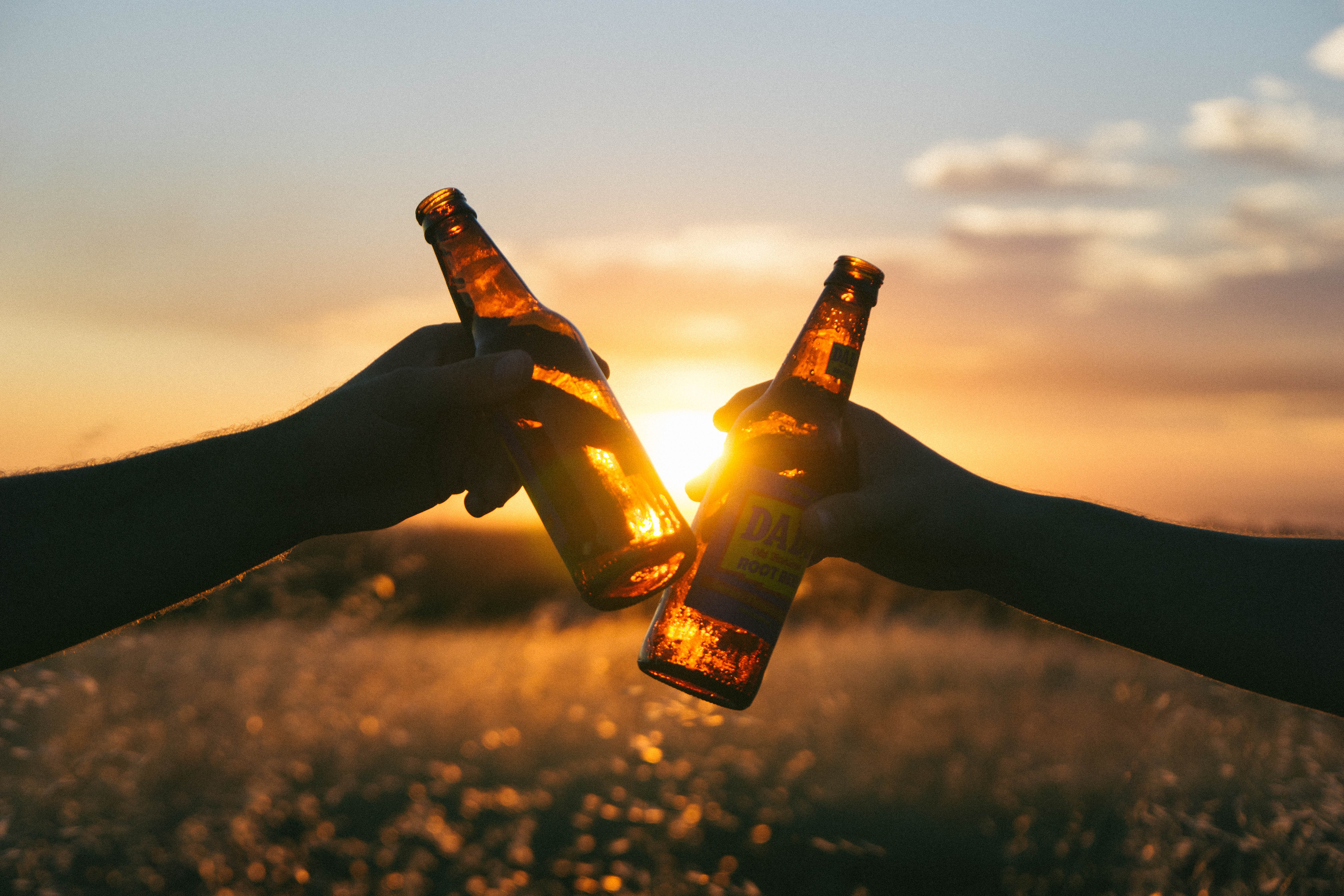 In a lot of countries beer is cheaper than water, I’ll leave it at that.
In a lot of countries beer is cheaper than water, I’ll leave it at that.
- Download currency converter to your phone so that you can get a rough idea on prices.
- Drinking spirits is expensive, unless you go to the local supermarket to buy them and have breeze here is cheap and Ouzo is cheap also the local wine this is generally cheap (but not always good)
- While tipping isn’t expected throughout Europe, rounding up to the nearest Euro or giving one or two Euros is appreciated.
- It is handy to have a Credit Card, not just a debit card, as hotels and car hire places will request this as security against damages. Also handy to have for an emergency.
TRAVEL TIPS
- Regularly upload your photos to the cloud in case you lose your phone.

 While phone cameras are getting better all the time, it will never be as good as a proper digital camera.
While phone cameras are getting better all the time, it will never be as good as a proper digital camera. Keep a travel journal. It sounds lame, but a journal helps to galvanise your memories. You will remember more of the “specifics” such as details, sounds, feelings, stories. etc rather than the “general” I guarantee you in 20 years’ time, you’ll be glad you did. as you will be instantly transported back to the very moment and what you felt at that time. This will be one of the best
Keep a travel journal. It sounds lame, but a journal helps to galvanise your memories. You will remember more of the “specifics” such as details, sounds, feelings, stories. etc rather than the “general” I guarantee you in 20 years’ time, you’ll be glad you did. as you will be instantly transported back to the very moment and what you felt at that time. This will be one of the best  times of your lives, so enjoy
times of your lives, so enjoy- Always have a pen handy. You never know when you’ll need to write down directions, or the name of a cool bar or restaurant, or the number of a new French Prince you’ve just met.
- Download a translation app to your phone
- Start a WhatsApp group to communicate with each other
- Even though you might be going as a group, don’t forget to try and meet new people as this can add to your travel experience. It is always good to meet new people as you might end up with new free places to stay around the world. Invite that solo traveller you meet at the hostel to join you for drinks.
- By all means get the Instagram photo, but don’t forget to enjoy the moment as well.
 You will be living out of each other’s pockets, so sometimes it’s nice to just have a little bit of me time and go and explore on your own.
You will be living out of each other’s pockets, so sometimes it’s nice to just have a little bit of me time and go and explore on your own.
- Take photos not just insta stories, so that you have lasting memories.
- Don’t forget that this is your trip, so make sure you do the things that you want to do, so don’t be afraid off to a gallery, or visit a museum by yourself if no one else wants to go. You don’t always have to do everything together it is ok to split off during the day and come back together at the end of the day and share your experiences
- It is also ok if you just have a relaxation day and do nothing.
 It can be tiring travelling for weeks on end.
It can be tiring travelling for weeks on end.  Take up reading as it is something you can do on a plane, on a train ,on a ferry, on a beach, anywhere. It is even better if you read a book that is set in the country that you actually visiting as it brings the book and the country to life.
Take up reading as it is something you can do on a plane, on a train ,on a ferry, on a beach, anywhere. It is even better if you read a book that is set in the country that you actually visiting as it brings the book and the country to life.
- Try not to over research everything. This takes away the element of surprise and the wow factor upon seeing something unexpected.
- Remember that no one at home can see you. Do things that you wouldn’t normally do, have fun and dance like no one’s watching, experience new things, eat new things, meet new people, try new foods, have a wonderful time.
SAFETY & SECURITY
- Always know where your passport is at all times. Don’t take it out with you unless you feel that
 there is not a
there is not a 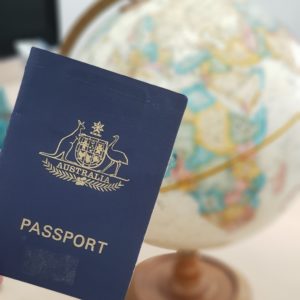 safe place at your hotel/hostel to secure it. Keep it locked in your suitcase, or room safe.
safe place at your hotel/hostel to secure it. Keep it locked in your suitcase, or room safe. - Sometimes your accommodation may want to keep your passport, which is normal practice in many countries, but ask them to take a photocopy of it instead and you keep the original. Say you need it to hire a car, or need it to get money out of the bank, or whatever excuse you can think of. Always keep your passport safe.
- Do not get your passport wet or torn. A damaged passport can bring an immediate stop to your travels. It can result in you being detained at Immigration while they investigate (they are looking for tampered passports or forgeries). Even a spilt vodka cruiser can render your passport invalid
- Take out Comprehensive Travel Insurance. As the saying goes – if you cant afford travel insurance, you cant afford to travel. Hopefully the money spent on travel insurance is wasted and you dont need to make any claims.
- Travel insurance does not cover for stupidity.

- Use a wire padlock to use to lock up your backpack or suitcase, as you can anchor it to your bed etc if there aren’t any suitable storage facilities.
- Give your parents a copy of your itinerary so that they can follow along your trip.
- Make contact with your parents regularly so they don’t worry.
- Keep a copy of your credit card in a separate location.
- Email yourself a copy of your passport and other travel documentation.
- Always look out for each other.

- Do not let anyone go off on their own at night – stick together.

- Always know where your handbag/backpack is at all times, especially when sitting at street cafes. Don’t hang them on the back of your chair…..its not home.
- When sitting at a cafe put the seat leg through the loop of your bag or handbag. This will secure them and stop any opportunist thieves.
- Be wary of “gypsies” particularly around train stations (and on trains)
- Be wary of beggars and do not give them money. They are just playing on your emotions and may not be in genuine need. If you want to help, donate to a reputable charitable organisation that helps to fight poverty.
- Always be aware of your surroundings.
- If possible collate everyone’s travel insurance details so that if something does happen, everyone has the emergency numbers and can arrange immediate help.
- Take a photo of your luggage/suitcase in case it gets stolen or lost in transit you can report it.
- Put your name, phone number and email details inside your luggage, which may help in retrieval if it goes missing.
- Don’t take flashy or irreplaceable jewelry or anything of sentimental value that you would be devastated if it was lost. You wont need it, and it might make you a target for thieves.
- AirBnB’s are not regulated and generally located in suburban areas. They very rarely offer any security and there has been known cases of landlords stealing guests belongings while they have been out. They are not subject to commercial cleanliness regulations that hotels have to adhere to, There is no “hotel desk” to ask questions, directions or recommendations from or 24 hour service if you arrive early in the morning or late at night.
HOSTELS
- Don’t forget flip flops – especially if you have booked shared bathrooms at hostels

 When Staying in a hostel be respectful of the noise you create particularly if you are in a shared room as others are trying to sleep.
When Staying in a hostel be respectful of the noise you create particularly if you are in a shared room as others are trying to sleep.- Hostels now offer a range of style and standards of accommodation. While some still offer the large 12 bed dorm style arrangements, many now offer, smaller rooms with 2 or 4 beds and with ensuites.
- Hostels are a great way to meet new people to go out at night with.
- Hostels can be a great source of local information about cheap eats and drinks, or the secret “must see”
TRANSPORT
- Get to the train station at least 30 minutes before the train is due
 to depart. Some train stations have many platforms and can be confusing finding the right one.
to depart. Some train stations have many platforms and can be confusing finding the right one.
- You must buy a Eurail Pass before travelling to Europe as they can only be purchased outside of Europe.
- A Eurail pass is a good option if you are doing lots of train travel throughout Europe. There are many different types of passes, some that just cover certain countries or regions, some that cover continuous days of travel (for those on the move every day), and those that cover a certain number of travel days.
- Always book your next train trip before you leave the train station. A Eurail Pass only guarantees you a train ticket, if the train is full you wont get on unless you have pre-booked. This is imperative during the peak summer travel months of July & August.
- Keep an eye on your belongings when travelling on trains.

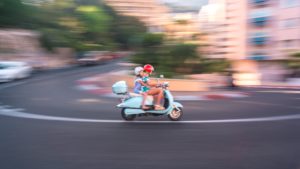 Do not hire mopeds or quad-bikes unless you are an accomplished motorbike rider. While they look lie a lot of fun, they are very dangerous for the inexperienced, as the roads are generally dirt or unkept, European road rules are different and you wont be covered by travel insurance if you injure yourself, or someone else, or damage property.
Do not hire mopeds or quad-bikes unless you are an accomplished motorbike rider. While they look lie a lot of fun, they are very dangerous for the inexperienced, as the roads are generally dirt or unkept, European road rules are different and you wont be covered by travel insurance if you injure yourself, or someone else, or damage property.- Learn to drive a manual as its hard to find an automatic hire car.
- Get your International Drivers License (click here to apply online )
- Taxis are generally cheaper in Europe than in Australia, but make sure that they use the metre.
SCHENGEN ZONE/VISAS
Schengen Area, signifies a zone where 26 European countries, abolished their internal borders, for the free and unrestricted movement of people, in harmony with common rules for controlling external borders and fighting criminality by strengthening the common judicial system and police cooperation.
Schengen Area covers most of the EU countries, except Ireland and the countries that are soon to be part of: Romania, Bulgaria, Croatia and Cyprus. Although not members of the EU, countries like: Norway, Iceland, Switzerland and Lichtenstein are also part of the Schengen zone.
If you are planning on travelling for longer than 3 months, it is important to plan your trip to make sure that you do not violate any Visa conditions.
Australian passport holders can only stay within the Schengen Zone for 90 days out of 180 days. This means that after 30 days within the Schengen Zone you will need to leave the zone for 30 days before entering any countries within the Zone.
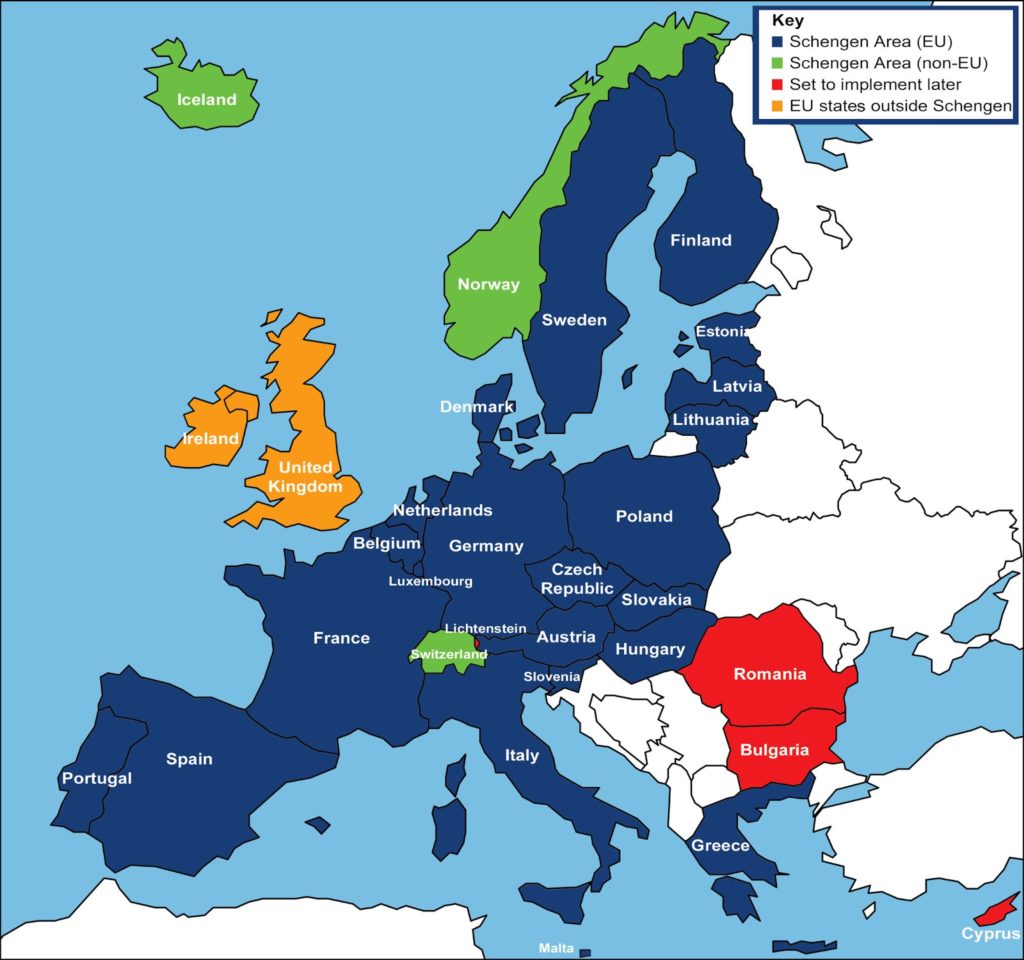
For more information about The Schengen Zone
GREECE
- There will generally be a bus waiting at the harbour when you arrive on an island so just ask where it’s going.

 If you want to get good photos on the islands, get up early as the streets will be empty and the light will be perfect.
If you want to get good photos on the islands, get up early as the streets will be empty and the light will be perfect.- It is perfectly acceptable to sit at a cafe for 3 hours drinking the same coffee. The waiter will put your bill in a shot glass, or similar, and keep adding to it and you pay at the end.
- The cheapest way to get around island is generally by the bus. They are regular during summer and go to the main places and costs roughly 1.7 euros a trip.
- Credit cards are widely accepted, it is always good to have cash in Greece. If you do not receive a receipt you do not have to pay for that service…. The government is cracking down on the cash society black market.
- Breakfast is generally a simple affair it may consist of boiled eggs, yoghurt, processed meats such as ham or mortadella, cheeses and toast. You will probably also get corn flakes.
- In Greece lunch is generally eaten around 2pm and dinner is never before 8pm, so if you go out to eat on Australian time, you’ll end being the only people there, if the restaurant is actually open.

- If visiting a church or a mosque dress modestly.
- Don’t pat the stray dogs or cats.
- There are cafeterias on the ferries, but I recommend if you want something, get it early before the line gets too long.
- If you want to be really greek experience a frappe or a greek coffee.
- Try a Greek dessert at least once, such as a galaktoboureko which is a Greek version of a vanilla slice …. sort of!.
- I recommend taking some swimming goggles because the ocean is so beautiful and lots of fun to snorkel around the rocks.
 Check your ferry time and departure and make sure you are getting onto the right ferry…. There will be signs for the name of the ferry company, as well as the name of the ship and destination on the ship.
Check your ferry time and departure and make sure you are getting onto the right ferry…. There will be signs for the name of the ferry company, as well as the name of the ship and destination on the ship.
- Get to the ferry about 20 to 30 minutes before hand. You can usually see it arriving in the harbour so you can judge your time. Everyone will congregate, it will let all the passengers off and then everyone boards at once. It can be a bit chaotic but it’s fun.
- You will see a lot of blue dome churches and chapels. The Greeks are very religious, so please be respectful of them when entering or climbing over them to take photos.
- On the big ferries, there is no need to carry your big luggage up the stairs as there will be an area to leave your luggage on the lower deck and only carry your hand luggage up the stairs to your seats.
- To get your ferry tickets, take the voucher to a ferry company (most are located around the port) and exchange it for an actual paper ticket.

 DO NOT FLUSH PAPER DOWN THE TOILET.There will be signs everywhere , this is common throughout all of Greece due to ancient plumbing not being able to cope with the amount of paper. There will be a bin right next to the toilet to dispose of your used toilet paper. It is disgusting, but that’s just the way it is.
DO NOT FLUSH PAPER DOWN THE TOILET.There will be signs everywhere , this is common throughout all of Greece due to ancient plumbing not being able to cope with the amount of paper. There will be a bin right next to the toilet to dispose of your used toilet paper. It is disgusting, but that’s just the way it is.- The Greeks are not being rude if they don’t place your change into your hands as they will slap it down onto the counter, this is just what they do.
- Sometimes, upon being asked a question, a Greek will just shrug and throw their head back with a strange look – this just means I don’t know.
- In Greece, what sounds like no ((Ne) means yes. ohi (Oxi) means no.
- It is always nice, and polite, to try and speak a little bit of the local language such as hello (Yaisas), goodbye (Andio), thank you (Efcharisto) and please (parakalo).

- It is up to your own conscience if you choose to ride the donkeys in Santorini.
- Please do not hire my mopeds. Hire a small car instead as is it safer and you will also have somewhere to store your things while you’re at the beach. Many companies are now asking for an International Drivers License. This can be done online.
- Watch Mamma Mia on the plane so you can get excited about Greece.
- Its not expensive to eat in Greece. The
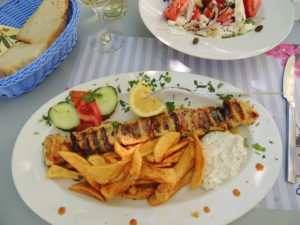 cheap street food in Grease is the yiros, predominantly pork or chicken and always comes with chips inside. What we would call toasted sandwich the Greek call “toast”, is also a cheap meal. Greek Salad which only cost you around 6 euros unless you’re on Santorini or Mykonos where it’s probably about 10 years euros
cheap street food in Grease is the yiros, predominantly pork or chicken and always comes with chips inside. What we would call toasted sandwich the Greek call “toast”, is also a cheap meal. Greek Salad which only cost you around 6 euros unless you’re on Santorini or Mykonos where it’s probably about 10 years euros - Calamari is also a cheap meal. Fresh fish tends to be expensive. It is normal to order up big and put everything onto the table and share a meal. You will always be served bread and water these are not free and you will find that you will pay for them on your bill.

- Most beaches in
 Greece are called “organised beaches” where you hire a sunbed and umbrella for the day. This could range from 5 euro 25 roles depending on where you are, so always ask. Beaches will also have an area that is unorganised that you can just lay your towel down for free.
Greece are called “organised beaches” where you hire a sunbed and umbrella for the day. This could range from 5 euro 25 roles depending on where you are, so always ask. Beaches will also have an area that is unorganised that you can just lay your towel down for free. - Always be respectful of the locals the Greeks are a very proud people, and they love to welcome visitors and they want you to have a good time and they want you to love their country (which is not hard to do)
- English is widely spoken Greece but it does help to learn a little bit of the language
